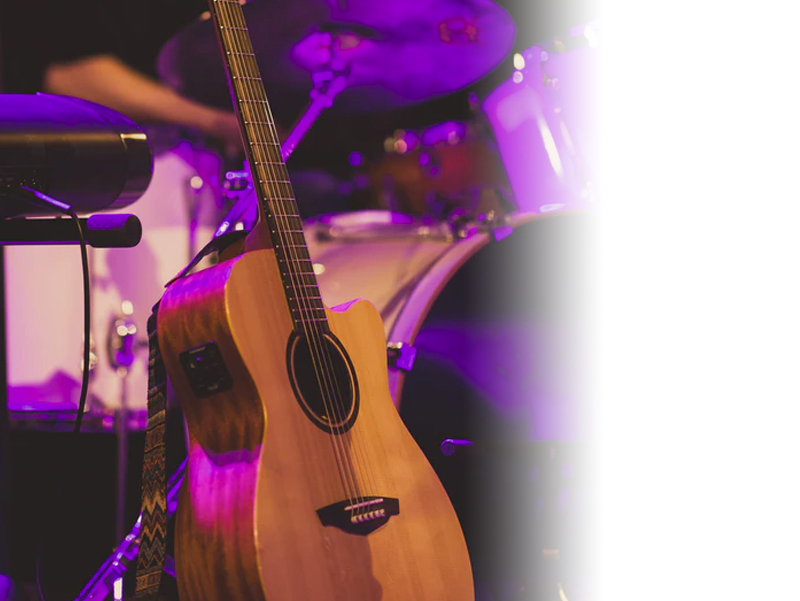Music: GCSE Pathway
 Course Information
Course Information
| Literacy | |
|---|---|
| Numeracy | |
| Communications | |
| Creativity | |
| Practical | |
| Group Work | |
| Examination Assessment | 40% |
| Non-Examination Assessment | 60% |
| EBacc | No |
| Examination Board | Eduqas |
| Course | GCSE |
General Information
GCSE Music is an academic GCSE. This subject is appealing to universities because it shows you can persevere in your chosen instrument and learn a wide variety of skills.
It includes analysing music, the study of the history and context of a wide variety of musical styles, writing an essay, aural skills (identifying musical notes from listening), composing 2 pieces of music and performing on your chosen instrument.
You may find GCSE music difficult if you do not play an instrument and have weekly lessons, either as a beginner or a more experienced player/singer. You will need to consider this if you wish to pursue GCSE music or go down the vocational route of Level 1/2 Vocational Award in Performing Arts (Technical Award).
What will I need to succeed?
- To enjoy listening to and learning about many different styles of music.
- To enjoy performing (singing or playing) in any style – it is crucial that you have instrumental lessons already or are willing to start them.
- To enjoy creating and recording their own music.
- To enjoy using music technology.
- To enjoy working on your own and with others.
Expected Subject Content
The GCSE course follows WJEC (Welsh Board) Eduqas and focuses on the three main areas of listening, performing and composing.
The assessment for this course is weighted as follows:
Component 1: Performing – 30% of the final grade. Non-examined assessment (ie coursework marked internally)
- Perform a minimum of two pieces on your instrument or voice. One of these must be as an ensemble (group).
- The total duration of the performance is 4-6 minutes.
Component 2: Composing– 30% of the final grade. Non-examined assessment (ie coursework marked internally)
- Compose 2 pieces of music, one of which must be to a brief.
- The total duration must be 3-6 minutes.
Component 3: Appraising– 40%
A listening and writing examination at the end of Year 11 based upon specific pieces of music taken from a wide range of styles and musical concepts & skills gained during the course.
Area of study 1: Musical Forms and Devices
Area of study 2: Music for Ensemble
Area of study 3: Film Music
Area of study 4: Popular Music
What careers it can lead to after leaving Swanmore College
You could go on to study A Level music, music technology or switch over to a vocational course such as Rock School Level 3 or BTEC music technology, sound production or performance.
GCSE music has lots of transferable skills including analysis, creativity, essay writing and group work. It is highly regarded in many career paths.
You can study music at University; anything from an academic degree at Oxford or Cambridge, a performing degree at a music college, such as The Royal College of Music in London or Trinity College London, to more vocational courses in performing, sound production or music technology.
Examples of careers in music include a performer, composer, sound engineer, tour manager, music arranger, music publicist, DJ, and concert promoter.
